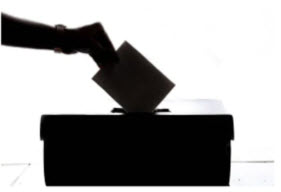BC laws state that Provincial Court judges must deal with applications for recounts in municipal elections. This eNews answers some questions you might have after reading news reports about judicial recounts in BC’s recent municipal elections. Why are judges drawing lots? Why are some applications for recount dismissed? What laws govern judicial recounts in municipal elections in BC?
What laws govern judicial recounts?
The Local Government Act (and the Vancouver Charter for the Vancouver election) give the Provincial Court exclusive jurisdiction to hear applications for judicial recount in municipal elections. These laws also establish rules a judge must apply when deciding issues about recounts.

Who may apply for a recount?
Only an elector of the municipality, a candidate or their representative, or the chief election officer may apply for a judicial recount. When there’s a tie, the chief election officer must apply for a recount.
When may they apply?
For the elections held on October 15, 2022, these laws required that applications for judicial recount be made from October 19 to 24 and that recounts be completed by the end of day on October 28, 2022.
What grounds are needed?
Except when there’s a tie, an application for recount may only be made on one or more of these grounds:
• that votes were accepted, or ballots rejected, incorrectly
• that a ballot account does not accurately record the number of valid votes for a candidate
• that the final determination did not correctly calculate the total number of valid votes for a candidate
Are there requirements for filing, notice, and service of applications?
An application must briefly lay out the facts on which it is based and must be supported by an affidavit stating those facts.
The laws say an applicant must immediately notify the Chief Election Officer and the affected candidates that a judicial recount will be conducted at the time set by the law. Also, within 24 hours of filing their application, an applicant must deliver copies of the application, the supporting affidavit, and a notice of the time for the recount to all affected persons.
Because the legislation imposes strict time limits, people need to be notified quickly. A hearing may be held within a day or two.
What happens at the hearing?
The judge at the hearing decides if, when, where, and how a recount will occur. They may also decide who may attend.
If a recount is ordered, when does it take place?
The laws require that a recount be completed by the end of the thirteenth day after the close of general voting. For the recent municipal elections, the deadline was the end of day on October 28, 2022.
What happens if there’s a tie?
If, at the end of a recount, the number of valid votes for two or more candidates is the same, there are two possible courses of action.
A local government may have bylaws requiring that a tie after a recount is resolved by drawing lots. The procedure for drawing lots is set out in the Local Government Act and Vancouver Charter.
If the local government has no such bylaw, a run-off election for the tied candidates must be held on a Saturday not later than 50 days after the recount ends.
Where can I learn more about municipal recounts?
Find judges’ decisions about municipal election recounts at Judgments & Decisions on the Provincial Court website. Search for “recount”.
See too the Local Government Act RSBC 2015, chapter 1, sections 148-152 and the Vancouver Charter SBC 1953, chapter 55, sections 110-114 for the legislation governing municipal recounts in BC.
eNews articles provide general information only and should not be used as authority in court proceedings or as a substitute for legal advice.
Please check the date an eNews article was posted. We do our best to keep our website up to date, but older articles may not reflect current information.

